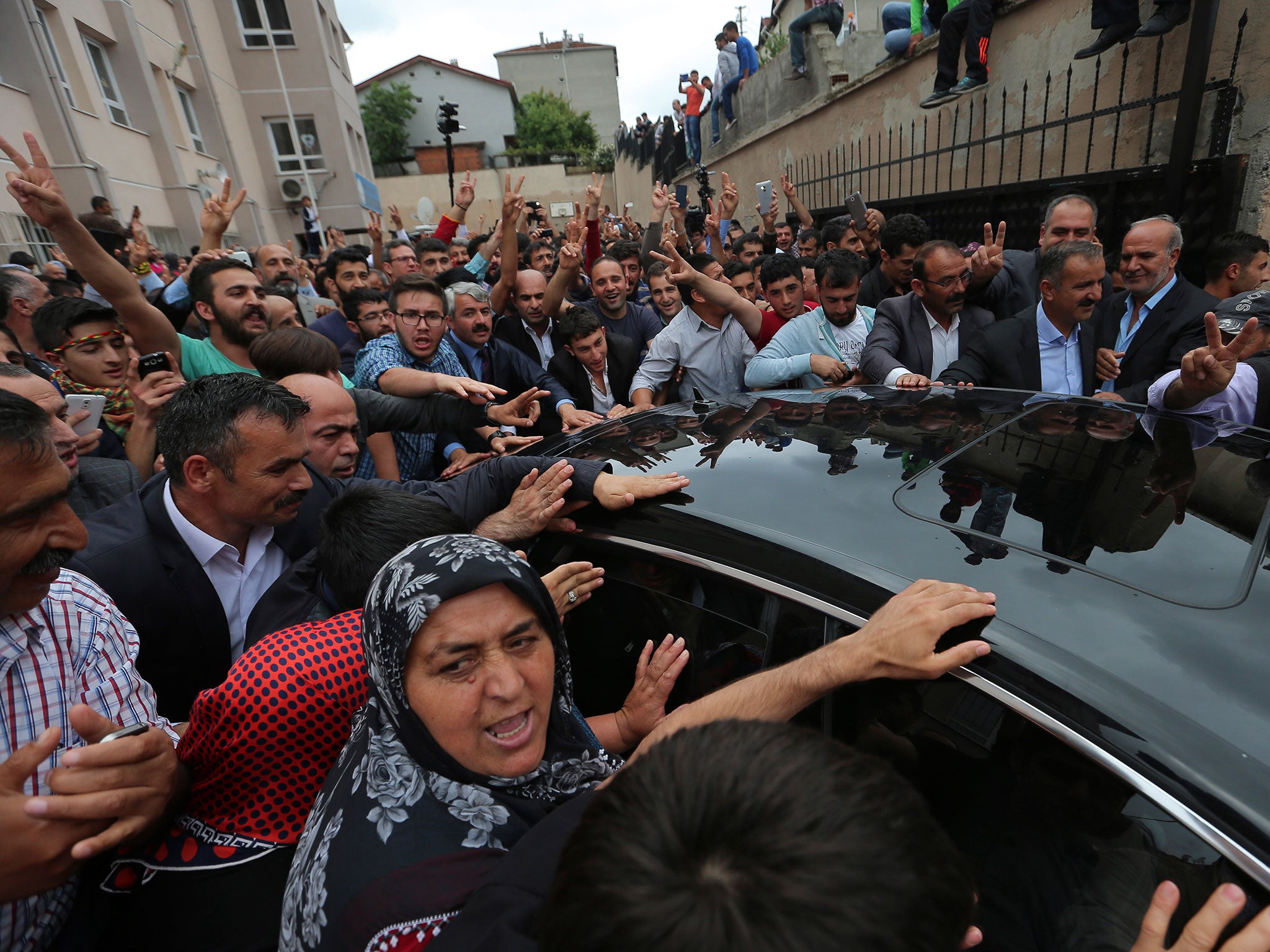Turkey elections: President Recep Erdogan's AKP party loses parliamentary majority in poll triumph for country's Kurds
Results make it unlikely that the AKP will have enough MPs to change the constitution to extend the power of the President

Thousands of Kurds took to the streets in Turkey on Sunday night after the main pro-Kurdish party won enough votes to enter parliament for the first time.
The general election also delivered a major blow to President Recep Tayyip Erdogan, who had been hoping that the ruling Justice and Development Party (AKP) would increase its share of the vote to allow it to change the constitution and hand him more power.
However, with 99 per cent of the vote counted, the AKP appeared to have lost its parliamentary majority after getting about 41 per cent of the vote, down from 49 per cent in 2011, with the main secular opposition Republican Peoples Party (CHP) in second place on about 25 per cent and the nationalist MHP in third on just under 17 per cent.
These elections were the first time disparate Kurdish candidates had come together in the Peoples Democratic Party (HDP) and it also made a bid for disenchanted left-leaning and secular CHP voters, as well as religious conservative Kurds who previously voted for the AKP.
The strategy appeared to have paid off with the HDP set to get 12 per cent, taking it above the 10 per cent threshold needed to get any MPs for the first time. They could now get about 80 of the 550 seats.
Jubilant Kurds flooded the streets of Diyarbakir in south-eastern Turkey, setting off fireworks and waving flags.
“This result shows that this country has had enough. Enough of Erdogan and his anger,” said Seyran Demir, a 47-year-old housewife who was among the thousands who gathered in the streets around the HDP’s provincial headquarters.
“I am so full of joy that I can’t speak properly.”
Sermin Ilik, 56, a retired teacher in Ankara, switched to the HDP after a lifelong commitment to the CHP.
“I think they are the most democratic party in Turkey. I really want them to pass the threshold because they will stop the AKP,” she told The Independent.
“They [the HDP] have struggled for years and it’s enough. I’ll give them my vote because I want to give them a chance to prove themselves.”
Referring to the decades-long armed conflict with the separatist Kurdistan Workers Party (PKK), she added: “Once they [the HDP] have a say in parliament, they will be part of the system without their weapons.
The AKP was expected to get 258 MPs, 18 below the number needed for a majority. President Erdogan’s party had hoped to increase the number of its MPs to 367, a so-called super-majority that would have enabled it to change the constitution and create a US-style executive presidency.
It may now face having to form a coalition government, which would be the first time the party was not able to rule by a majority since it came to power in 2002.
Some suggested that could be with the CHP. In its stronghold Besiktas district in Istanbul, voters young and old stood by the party founded by Kemal Ataturk.
“I would prefer a coalition of the AKP and the CHP to having the HDP in government – they’re terrorists,” said 22-year-old Yasin.
For AKP voters, however, their party is the only one they think can provide stability. Many remember the days of seemingly endless coalition governments, a weak economy and political infighting.
“We need a strong leader. This government has been in power for 12 years and it keeps being successful,” Firat, 30, said from behind his counter in Istanbul’s pro-AKP neighbourhood of Tophane.
Join our commenting forum
Join thought-provoking conversations, follow other Independent readers and see their replies
Comments
Bookmark popover
Removed from bookmarks